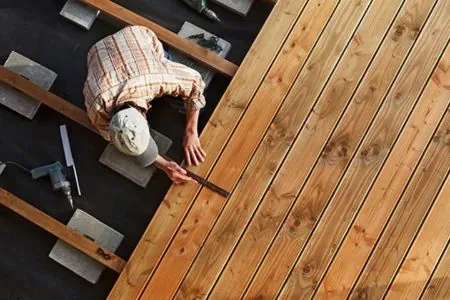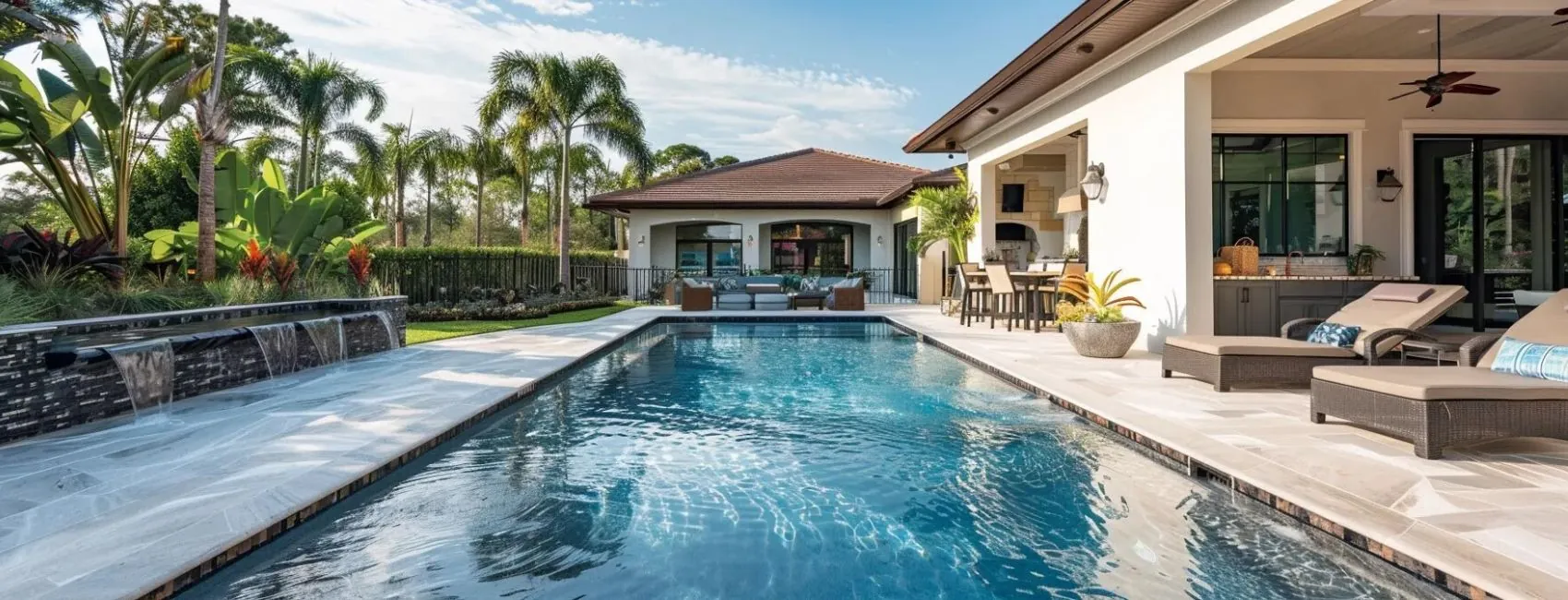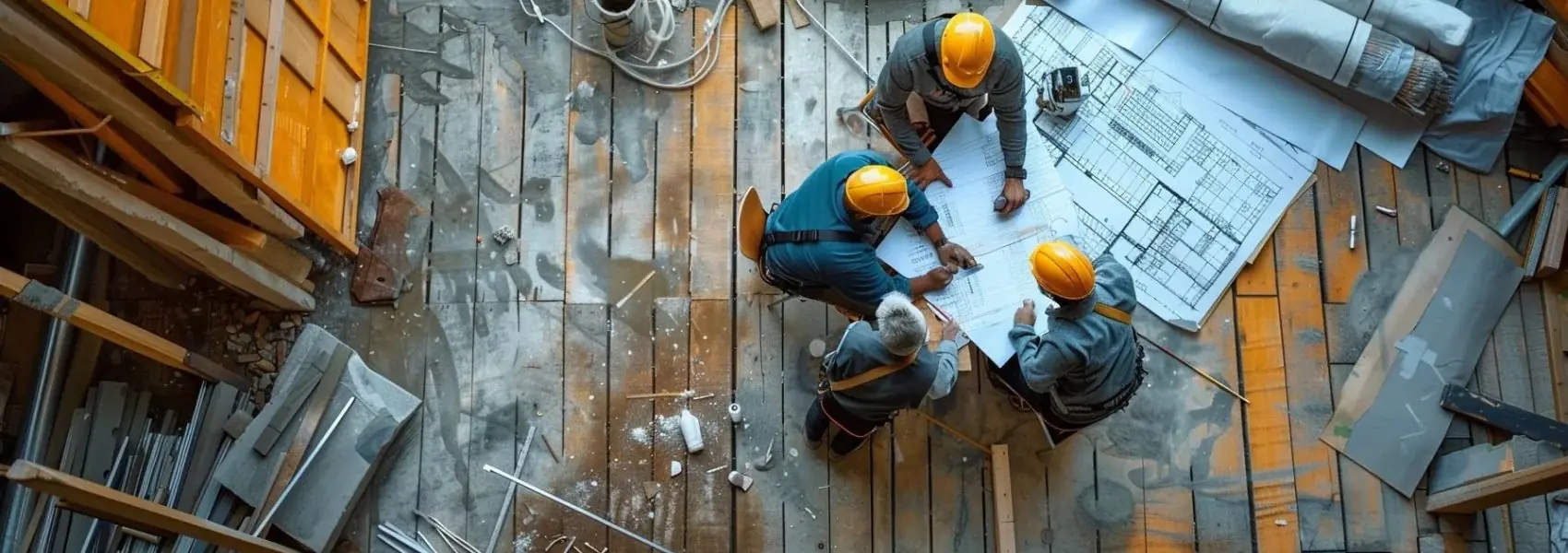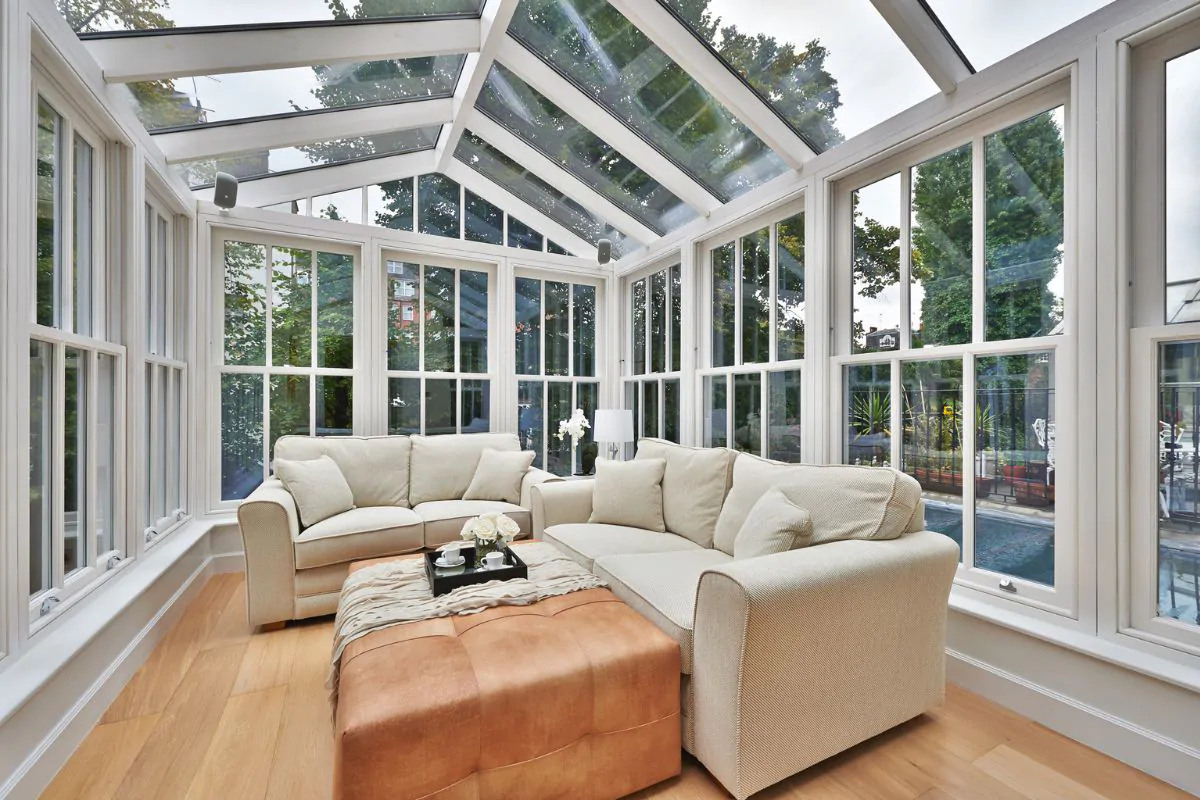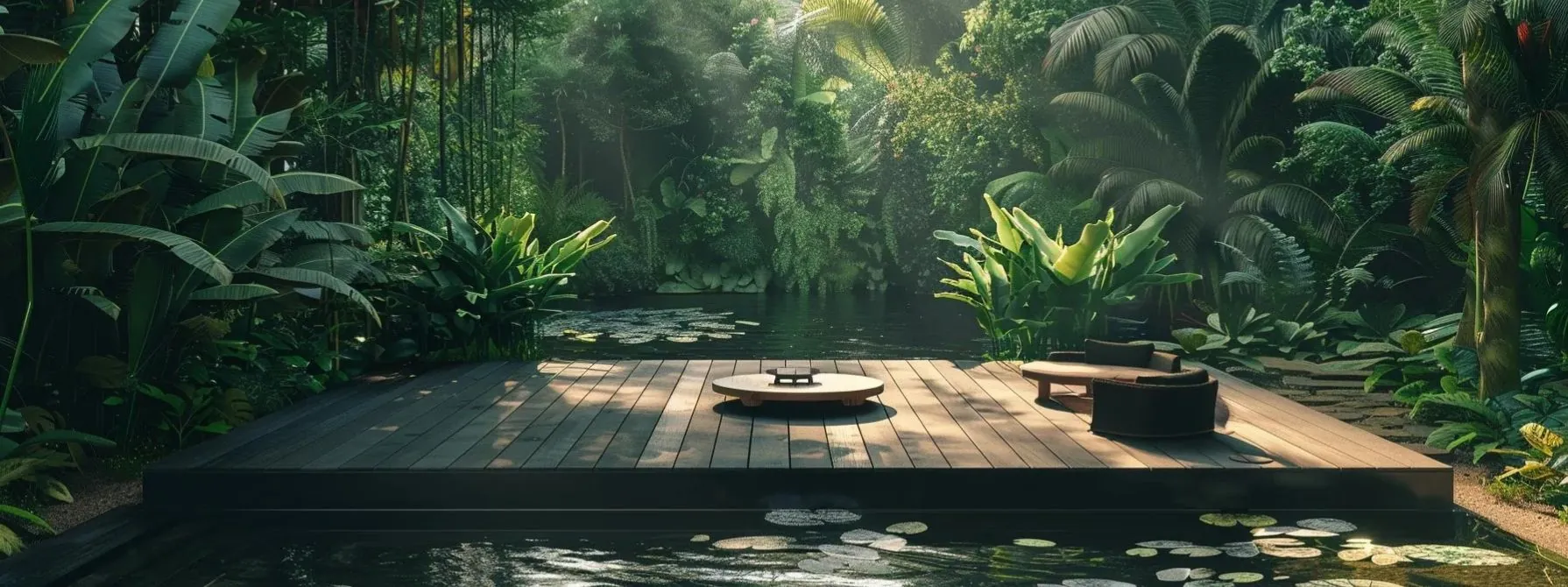One feature that is gaining attention when transforming residential outdoor living space is the floating deck. But what exactly is a floating deck? Unlike traditional decks attached to a home or with concrete foundations, floating decks are independent structures built directly on the ground without the need for anchors or support posts.
In this guide, we will explore everything you need to know about floating decks, from their benefits and design possibilities to the step-by-step process of building one yourself. Whether you are a seasoned DIYer or a first-time deck builder, understanding the ins and outs of floating decks can help you create an outdoor area that enhances your home and provides lasting enjoyment. For more detailed guidance, consider visiting deck design and installation.
What Is a Floating Deck?
A floating deck is an outdoor structure that sits above the ground but is not attached to any existing foundation or building. Unlike traditional decks anchored to a house or supported by posts embedded in the ground, a floating deck is freestanding.
Key Features of a Floating Deck
Floating decks stand out because of their simple yet functional design. They are easy to install and can be adapted to different spaces and landscapes. Understanding the key features of a floating deck can help you decide if it’s the right option for your backyard.
Freestanding
One of the standout features of a floating deck is that it is freestanding. This means it does not require any home or permanent foundation attachments. The deck sits on the ground, relying on its structure and materials for support. This makes it an ideal choice for homeowners who do not want to permanently change their property or those who live in areas where traditional decks may require a building permit.
Low to the Ground
Floating decks are typically built close to the ground, often just a few inches or feet above the surface. This low-profile design makes them an excellent option for yards with uneven terrain or those looking for a less intrusive structure. Because they do not require tall support posts, floating decks blend seamlessly into the landscape, offering a more natural and unobtrusive look than elevated decks.
Portable
Another benefit of a floating deck is its portability. Since it is not fixed to the ground, it can be relocated or dismantled with relative ease, making it a versatile option for homeowners who might want to change the layout of their outdoor space in the future. This feature is especially appealing to renters or those who plan to move homes in the near future.
Benefits of a Floating Deck

Floating decks offer several advantages over traditional decks, making them an appealing option for homeowners looking to enhance their outdoor space. These decks combine simplicity, cost-effectiveness, and versatility, providing an excellent way to create a functional and beautiful outdoor area without the complexities and costs of a permanent structure.
Below are some of the key benefits that come with building a floating deck.
Cost-Effective Solution
One of the most significant advantages of a floating deck is its affordability. Since floating decks do not require costly foundation work, such as digging holes for posts or pouring concrete, they are much less expensive to build than traditional decks. The savings on labor and materials make floating decks an excellent choice for homeowners on a budget who still want to add value and beauty to their outdoor space.
Quick Deck Installation
Floating decks are quicker to install than traditional decks because they do not require a foundation or extensive preparation. With fewer steps involved, homeowners can enjoy their new outdoor space sooner. Whether you are a DIY enthusiast or working with a contractor, the streamlined installation process saves both time and effort, making it a great option for those with time constraints.
Related Post:Building a Deck: Timeframe Revealed
Adaptability
Floating decks are highly adaptable to different spaces and landscapes. Whether you have a sloping yard or a small area, a floating deck can be designed to fit your unique outdoor space. Its freestanding structure allows it to be installed almost anywhere, making it a flexible option for homeowners who want to maximize the use of their outdoor area.
Minimal Permit Requirements
Because floating decks are not anchored to the ground, they generally require fewer or no permits, depending on local regulations. This can save homeowners the hassle of dealing with bureaucracy or lengthy approval processes. However, it is always a good idea to check with your local authorities to ensure you comply with any building codes that may apply.
Versatile Design Options
Floating decks offer incredible design flexibility, allowing homeowners to customize the size, shape, and materials. Whether you want a small, intimate space or a large deck for entertaining, the options are limitless. You can also choose from various materials, including wood, composite, or stone, to suit your style and the overall look of your backyard. For those interested in adding a unique touch to their outdoor space, exploring options for shade structures and pergolas can provide both beauty and functionality to your floating deck design.
How to Design a Floating Deck
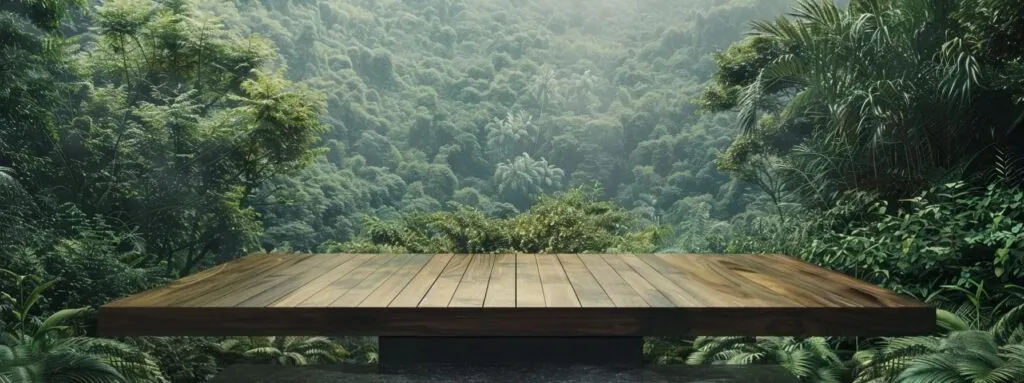
Designing a floating deck is an exciting way to enhance your outdoor living space. Whether you are building it yourself or hiring a contractor, several key factors should be considered when planning your deck. From selecting suitable materials to determining the ideal size and shape, proper design ensures your floating deck will be functional and stylish. Here is a breakdown of the essential elements to remember when designing your floating deck.
Choosing the Right Deck Materials
The materials you choose for your floating deck are crucial in its durability, look, and overall cost. Wood is popular for its natural beauty and affordability, but composite decking offers long-lasting durability with minimal maintenance. Materials like pressure-treated wood, PVC, or stone can create a unique look.
Size and Shape Considerations
When designing your floating deck, it’s essential to determine the size and shape that best suits your space. Consider how you plan to use the deck—whether for lounging, dining, or entertaining—and ensure the dimensions are appropriate for those activities. The shape can range from traditional rectangular decks to more unique circular or multi-level designs.
Decking Accessories and Finishes
Decking accessories and finishes are essential for enhancing the functionality and appearance of your floating deck. Railings, built-in seating, and lighting can make the space more inviting and practical. Consider adding a protective finish to preserve the wood or composite materials, helping to maintain the deck’s appearance over time.
Is a Floating Deck Right for Your Yard?

A floating deck can be an excellent option for many yards, especially if you want a flexible, low-maintenance outdoor space. It provides a simple and noninvasive solution if your yard has uneven ground or you want to avoid digging into the earth. It’s also ideal for smaller spaces or areas where a traditional deck would be too cumbersome.
However, floating decks may not be suitable for every situation. If your yard experiences heavy rainfall or flooding, a floating deck might not provide the necessary stability. Additionally, a traditional deck may be a better choice if you want a higher deck with extensive views or need to support heavy structures like a hot tub.
Avoid Mistakes When Building a Floating Deck, Hire a Pro

Building a floating deck may seem like a straightforward DIY project, but it’s easy to overlook important details like proper materials, foundation stability, and local regulations. A slight mistake can lead to costly repairs or an unsafe structure. Hiring a professional ensures your deck is built correctly, saving time and preventing potential issues.
Professionals bring the expertise to design, plan, and execute the project efficiently, ensuring your deck meets aesthetic and structural requirements. If you want a durable, long-lasting deck that enhances your backyard, it’s often best to trust the expert’s job.
Final Thoughts on the Benefits and Considerations of Floating DecksConclusion
A floating deck offers an affordable, versatile, and stylish solution to enhance your outdoor living space. Its easy installation, low maintenance, and adaptability make it an excellent option for many homeowners. You can create a beautiful outdoor retreat that suits your needs by understanding the key features, benefits, and design tips. Whether you decide to tackle the project yourself or hire a professional, a floating deck will elevate your backyard experience for years to come.
Frequently Ask Questions
What is the purpose of a floating deck?
The primary purpose of a floating deck is to provide a functional, freestanding outdoor space that enhances your yard’s usability and aesthetic appeal. Floating decks are ideal for creating a low-profile area for lounging, dining, or entertaining without the need for permanent foundations or attachments to your home.
Do floating decks need to be anchored?
No, floating decks do not need to be anchored because they are designed to sit directly on the ground. They rely on their weight and structure for stability. However, in areas with high winds or uneven terrain, additional measures like concrete deck blocks or ground-level anchors can improve stability.
Does a floating deck need a foundation?
While floating decks do not require a traditional concrete foundation, they still need a stable base. This base can consist of compacted gravel, concrete deck blocks, or pressure-treated sleepers to ensure the deck remains level and prevents moisture damage over time.
Are floating decks expensive?
Floating decks are generally more affordable than traditional decks because they require fewer materials, no complex foundations, and are often easier to install. Thecost will depend on the size, materials, and whether you build it yourself or hire a contractor.
How long does a floating deck last?
The lifespan of a floating deck depends on the materials used and the level of maintenance. Properly cared-for pressure-treated wood decks can last 15–20 years, while composite decking may last 25–30 years with minimal upkeep. Adding a protective finish and regularly cleaning the deck can extend its life.
What is the best base for a floating deck?
The best base for a floating deck is compacted gravel or concrete deck blocks. These options provide a stable and level surface while ensuring proper drainage, which helps prevent wood rot and structural instability over time.

